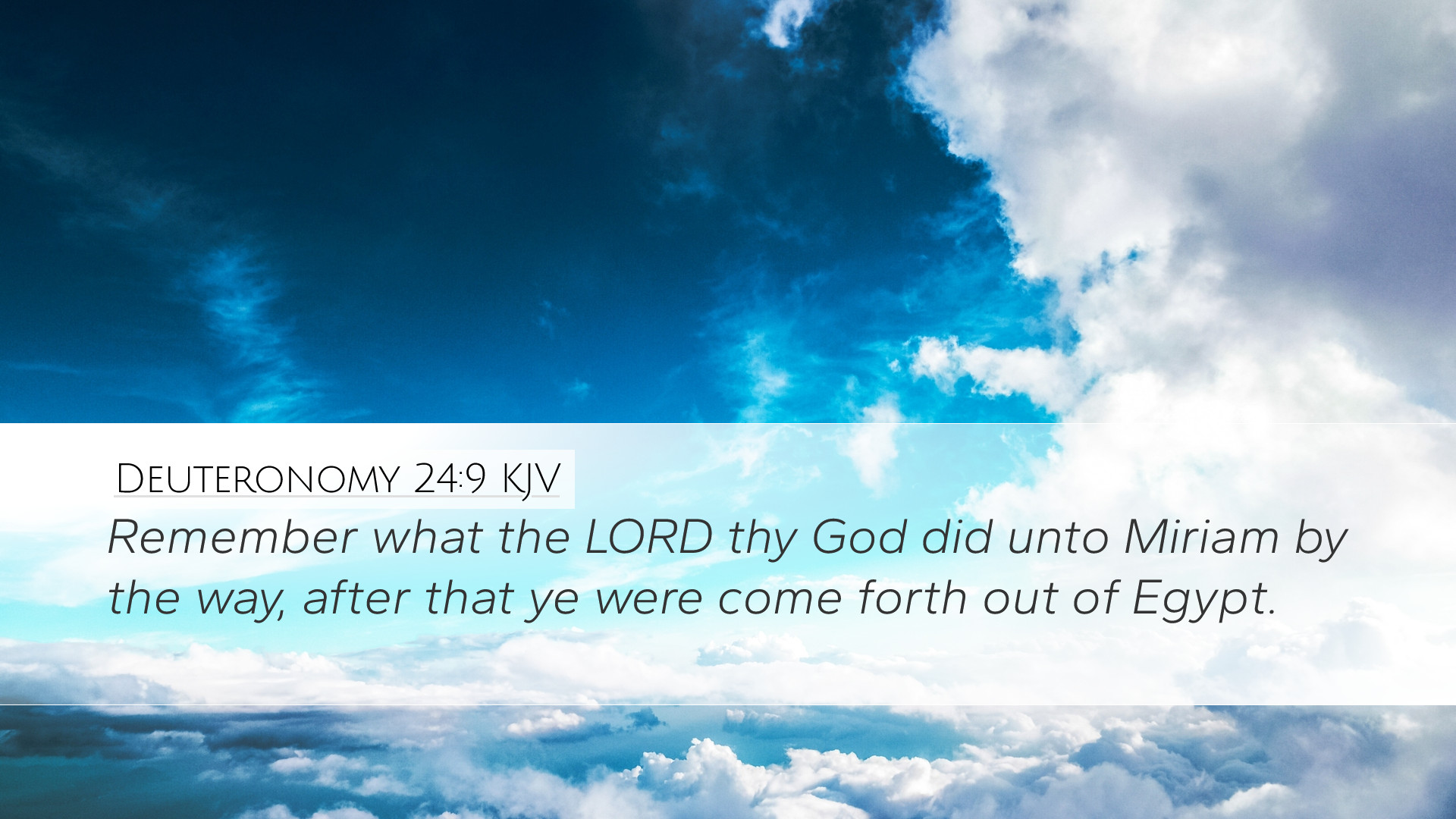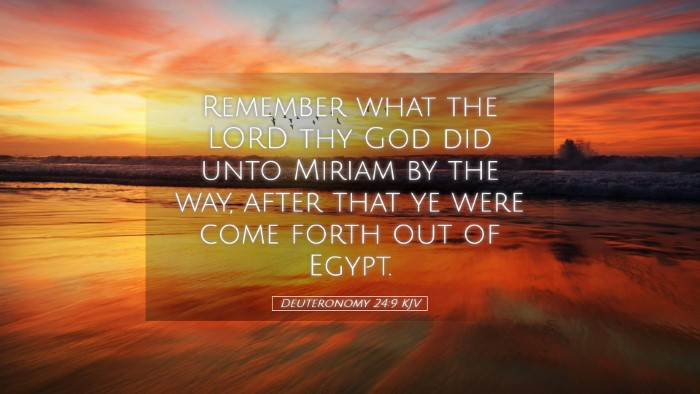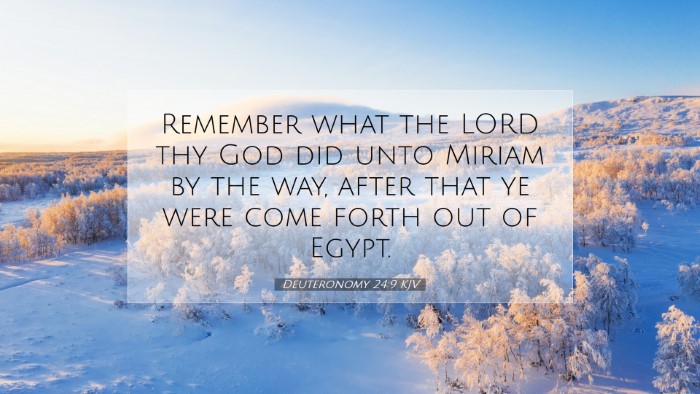Biblical Commentary on Deuteronomy 24:9
Verse Text: "Remember what the LORD your God did to Miriam along the way after you came out of Egypt."
Introduction
Deuteronomy 24:9 is a reminder of God's judgment and the importance of keeping His commandments. This verse, situated within a larger discussion on social justice and community conduct, calls the Israelites to remember the example of Miriam, the sister of Moses, who faced God's discipline for her actions. Understanding this verse requires a careful analysis of its context and implications, reflecting on themes of obedience, community, and divine justice.
Contextual Analysis
In the book of Deuteronomy, Moses lays out laws and teachings as the Israelites prepare to enter the Promised Land. Chapter 24 addresses various social issues, including divorce, justice for the poor and vulnerable, and the treatment of slaves. Within this framework, verse 9 serves as a transition into the ethical responsibilities of the community, urging them to maintain righteousness and sin awareness based on historical precedents.
Historical Background
The reference to Miriam alludes to the incident recorded in Numbers 12, where Miriam, along with Aaron, spoke against Moses due to jealousy and misunderstanding of his unique role as the leader chosen by God. God punished Miriam with leprosy for her actions, a divine correction that served as a lesson for the Israelites about the severity of rebellion against God’s appointed authority.
Key Themes
- The Nature of Judgment: Just as God judged Miriam, so too will He judge His people. This highlights God's holiness and the expectation that His followers act justly and righteously.
- Community Responsibility: The Israelites are called to remember the past to foster accountability within the community, suggesting a collective responsibility for maintaining God's law.
- Divine Authority: The story of Miriam serves to underscore the seriousness of divine authority and the implications of challenging God's chosen leaders.
Commentary Insights
Matthew Henry's Commentary
Matthew Henry emphasizes the role of memory in the believer's life. He states that remembering the judgments of God serves a dual purpose: it calls the faithful to repentance and reinforces their devotion to God’s commandments. By recalling the fate of Miriam, Henry argues, the Israelites are urged to avoid similar sin and maintain an attitude of humility before God’s appointed leaders.
Albert Barnes' Notes on the Bible
Albert Barnes touches upon the significance of the rebuke given to Miriam. He points out that God’s judgment is not merely punitive but is intended to instruct and guide His people. Barnes stresses that the community's memory of Miriam's punishment should lead them to a greater awareness of their own actions and the need for purity in their worship and conduct as they enter the Promised Land.
Adam Clarke's Commentary
Adam Clarke elaborates on the implications of this remembrance by highlighting the broader consequences of sin within the community. He notes that those in positions of leadership, like Miriam, are held to higher standards. Clarke invites readers to reflect on the interconnections between personal actions and communal purity, emphasizing that the remembrance must lead to wise and faithful living.
Theological Implications
Deuteronomy 24:9 carries significant theological implications. It suggests that God's judgment is not arbitrary, but rather a reflection of His holiness and justice. This verse encourages pastoral leaders and theologians to focus on the importance of remembrance within the religious community, advocating for teachings that promote accountability and spiritual growth.
Lessons for Today’s Context
- Command of Continuity: The necessity of remembering God’s past dealings should inform contemporary faith practices and communal ethics.
- Leadership Accountability: Just as Miriam was held accountable, leaders today must exercise their authority with humility, ensuring that their actions align with God’s will.
- Encouragement of Righteousness: As the community remembers historical events, they should be encouraged towards positive actions that honor God and reflect justice.
Conclusion
In summary, Deuteronomy 24:9 provides a profound lesson on the significance of remembering past events as guidance for current and future behavior. It serves as a reminder of God's authority, the potential consequences of rebellion, and the importance of maintaining community righteousness. The insights gained from public domain commentaries enrich our understanding of this verse, making it a vital source for pastors, students, theologians, and Bible scholars alike, encouraging a life anchored in remembrance, accountability, and obedience to God's commandments.


